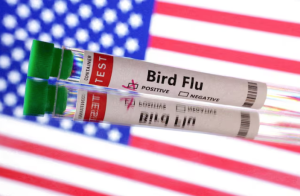Tinnitus, the perception of sound when no external sound is present, can be a frustrating and debilitating condition. While the exact causes of tinnitus are often complex and not fully understood, earwax, a natural substance produced by the ear, has been implicated as a potential contributor. However, separating fact from fiction when it comes to earwax and tinnitus is crucial.
Understanding Earwax
Earwax, or cerumen, is a substance produced by glands in the outer ear canal. It serves several important functions, including:
Lubrication: Keeps the ear canal moist and prevents dryness and irritation.
Cleaning: Traps dirt and debris, helping to keep the ear canal clean.
Protection: Acts as a barrier against bacteria, fungi, and insects.
While earwax is essential for ear health, excessive buildup can lead to various ear problems, including tinnitus.
The Myth: Earwax Causes Tinnitus
A common misconception is that earwax buildup is a primary cause of tinnitus. While excessive earwax can contribute to temporary tinnitus, it is rarely the sole culprit. In most cases, tinnitus is associated with underlying conditions such as:
Noise-induced hearing loss: Prolonged exposure to loud noise can damage the delicate hair cells in the inner ear, leading to tinnitus.
Ear infections: Infections of the middle ear can cause inflammation and pressure, leading to temporary tinnitus.
Meniere’s disease: A disorder of the inner ear that affects balance and hearing.
Head and neck injuries: Trauma to the head or neck can damage the auditory nerve, causing tinnitus.
Certain medications: Some medications, such as aspirin and certain antibiotics, can have tinnitus as a side effect.
The Truth: Earwax and Tinnitus
While earwax buildup can contribute to tinnitus, it is often a secondary factor. In many cases, addressing the underlying cause of tinnitus, such as noise-induced hearing loss or Meniere’s disease, is necessary to alleviate the symptoms.
However, it’s important to maintain good ear hygiene to prevent excessive earwax buildup. Here are some tips for healthy ears:
Avoid using cotton swabs: Cotton swabs can push earwax deeper into the ear canal, increasing the risk of impaction.
Use ear drops: Over-the-counter ear drops can help soften and remove earwax.
See a doctor: If you experience persistent earwax buildup or tinnitus, consult an ear, nose, and throat (ENT) specialist for professional cleaning or other treatments.
Conclusion
While earwax and tinnitus are often linked, it’s important to understand that excessive earwax buildup is rarely the sole cause of tinnitus. By maintaining good ear hygiene and addressing underlying health conditions, individuals can manage tinnitus and improve their quality of life.
If you’re experiencing tinnitus, it’s crucial to consult with a healthcare professional to determine the underlying cause and develop an appropriate treatment plan.







Be First to Comment